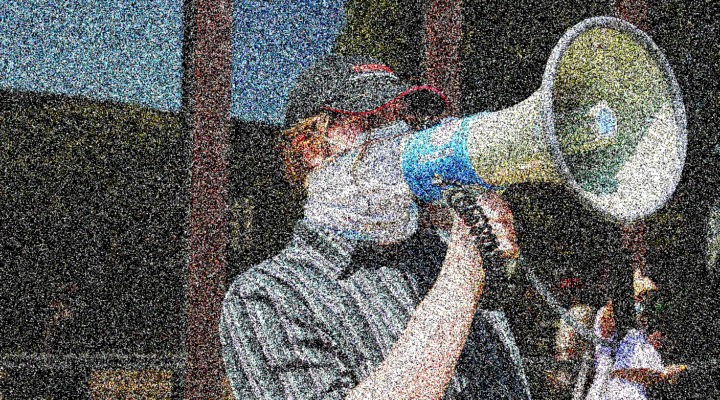During the days between Sept. 11, 2001, and the beginning of the Gulf Wars, my 7-year-old son and I participated in peace demonstrations with friends. Our clever anti-war signs got honks and waves from most folks driving and walking by. But then the inevitable happened.

Paula Mangum Sheridan
Someone in a passing car described us and our mothers with words similar to those I mumbled while writing my doctoral dissertation. An equally vivid retort emerged from some members of our group. It was over in less than 30 seconds, too late to cover my son’s ears. I don’t remember the words of the initiating volley, but I can recall every phrase my friends uttered.
The verbal violence in our peace group stung more than the fleeting insults of strangers, beginning a lesson I continue to learn. I realized that my heart, our hearts were not yet aligned with our mission. We wanted to demonstrate for world peace, but we didn’t know how to be at peace with our neighbors. We were like desert hikers who left their canteens at home.
We can march and pray for good, yet still do harm. Our best intentions for peace can be marinated in violence. Violent thoughts, words, methods. Although we avoid fisticuffs and packing heat, we can eviscerate our opponents’ souls while we attempt to promote our cause. We intend to be faithful and just, but our methods diminish the people we challenge. If we want to eradicate the threats to meaningful life, then for the sake of building heaven on earth, we can learn to resist sacredly.
What does sacred resistance look and feel like? How can we integrate both the inelegant actions and sacred essence of our enemies? The “love the sinner, hate the sin” routine fails us here. Because it’s not about our opponents or their agendas. It is about our ability to believe and behave as if we are all beloved — particularly when we aren’t playing well with each other.
Sacred resisters challenge and dismantle practices that dishonor God’s beloved. If we join in, we do our own work first. Our compassion for others begins with ourselves. Kristen Neff teaches us that self-compassion includes self-care and self-protection. As we take responsibility for our own well-being, we are more adept at honoring the wellness of others, even when we are in conflict.
“We are in this for more than pious posturing and are not satisfied with only posting ‘like’ or prayer emojis on social media.”
Sacred resisters look at ways we perpetuate oppression in others. Continuously. We take responsibility for our blind spots. We are in this for more than pious posturing and are not satisfied with only posting “like” or prayer emojis on social media. We look at the unlovely in ourselves, work on our own healing, and regard others with more care. We learn to consume responsibly, without hoarding, and rework our economy to provide more equitable distribution from our labor storehouses.
Sacred resisters work in community, making spaces for humility and possibility. There may be some solo acts out there, but most of us need the wisdom and strength generated from running with a healthy herd. We safeguard energy and effort, stepping in for another when weary, supporting others when it’s their turn to tap out. We learn sustaining rhythms of rest, reflection, work, correction and gratitude. We seek forgiveness and offer it generously.
Sacred resisters transform conversations to identify and vet solutions to unjust problems. We ask ourselves and others to be accountable. This differs from blame, shame and other actions that divert us from justice work. While it is tempting to amplify our enemy’s weaknesses, caricature one’s character, we know this will cost us our own spiritual and mental agility. We refuse to objectify our opponents and reduce them solely to their opinions. We look for similarities, for common hopes that unify us when possible. As Father Greg Boyle says, the “us and them” becomes just “us.” We may not achieve all of our goals, but we continue to recognize that we are all precious.
My congregation prays for our president and other world leaders every week. Our benediction exhorts us to sacredly resist all that diminishes others. We are invited to sign petitions, join discussion or action groups, often opposing our president’s tweets or executive orders. We resist power structures as we pray for those in power to be well and wise.
Is this a contradiction? I don’t think so. I believe we are leaning in to the nuances of becoming human and holy, hallowing God’s name as we sacredly resist.
Paula Mangum Sheridan recently retired from Whittier College in Whittier, Calif., as an associate professor and program director of the social work department. She is a licensed clinical social worker and supports voter accessibility and the rights of people without homes in her community.


